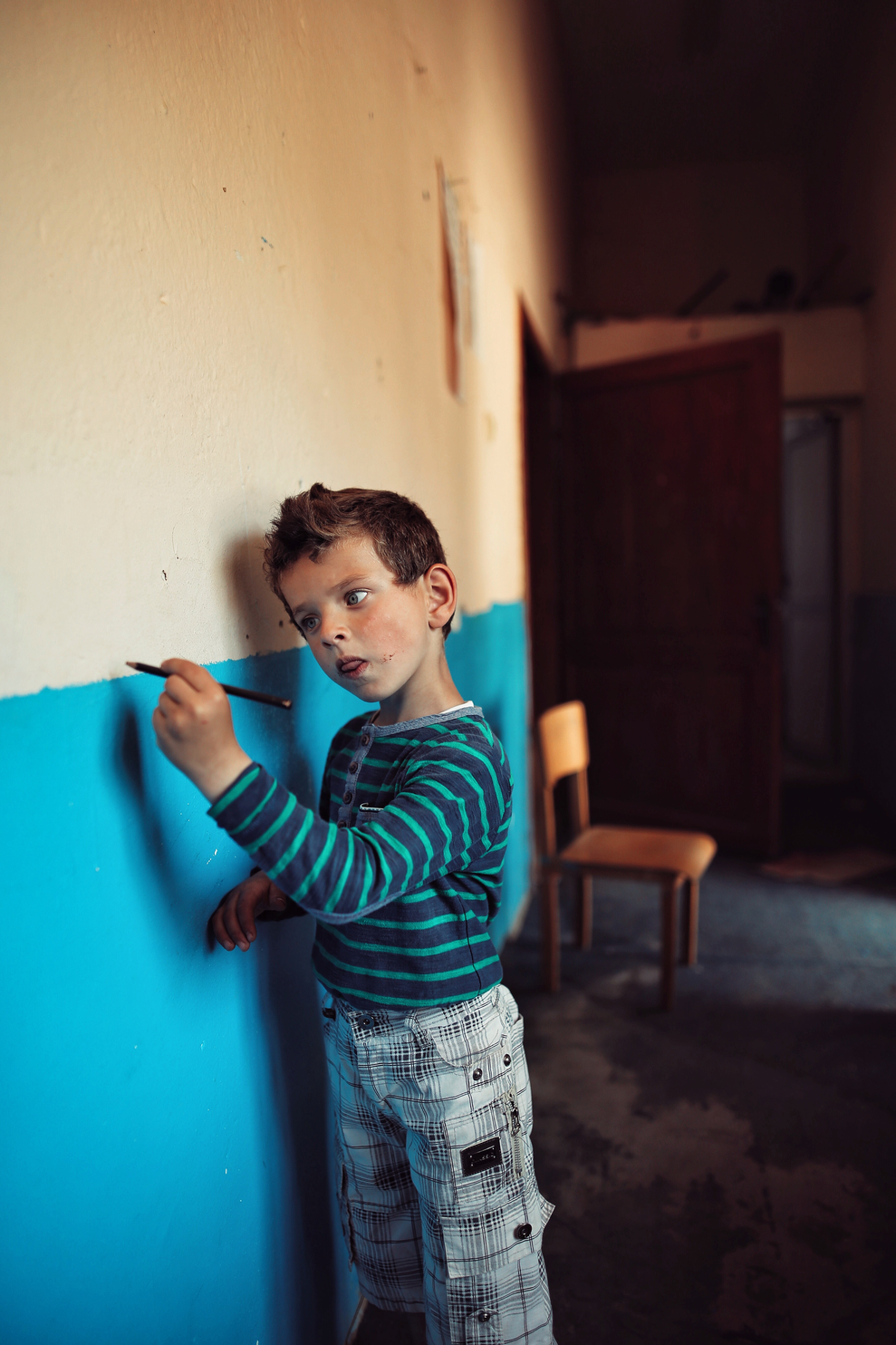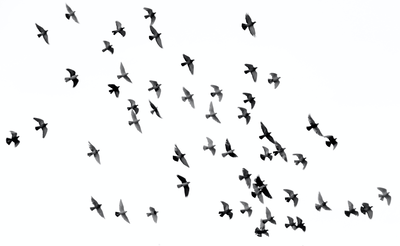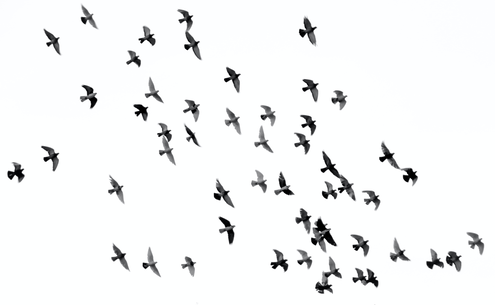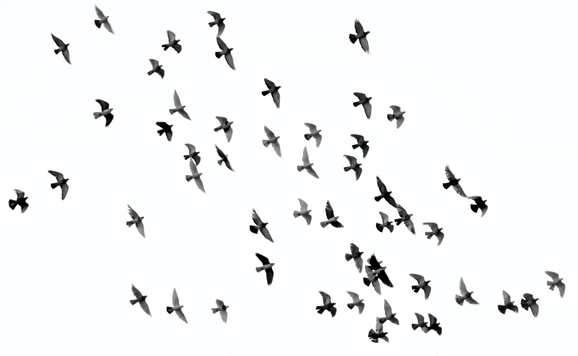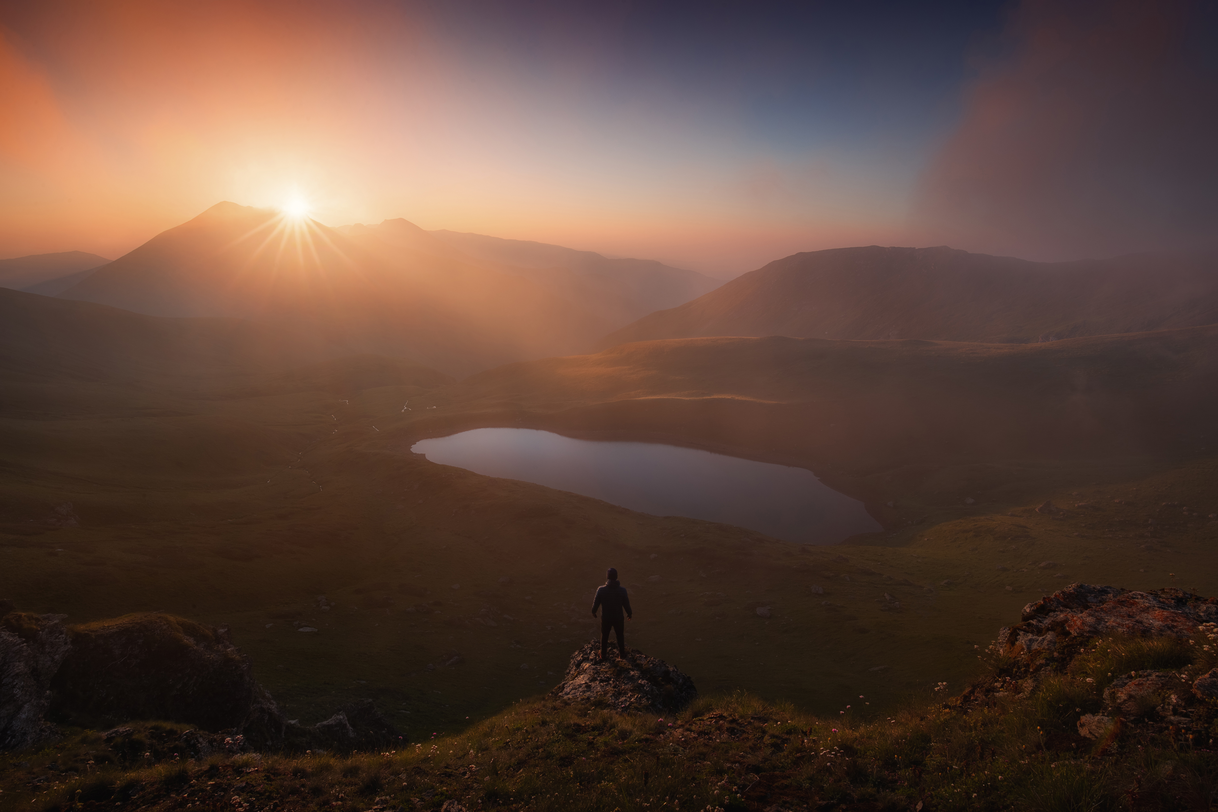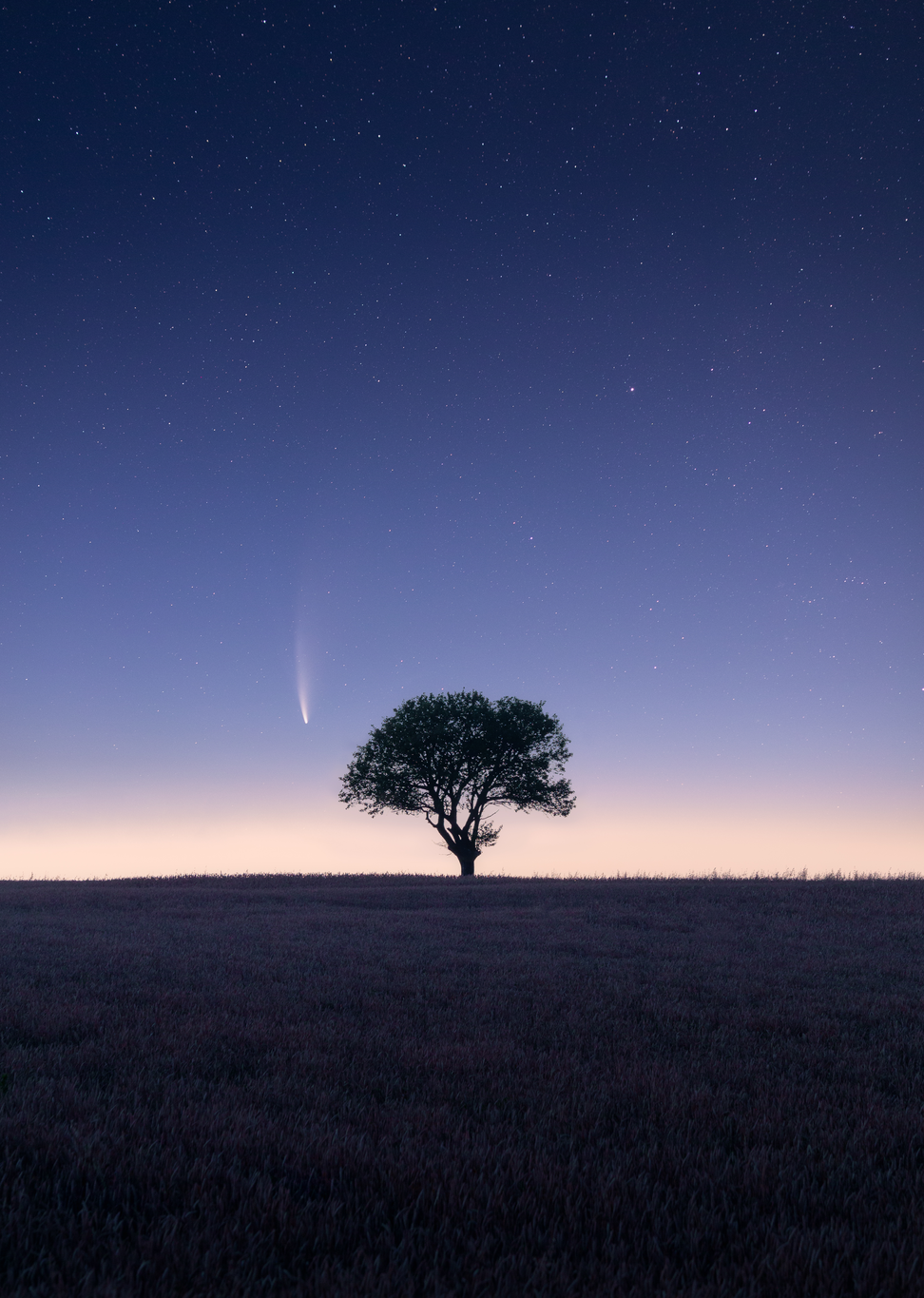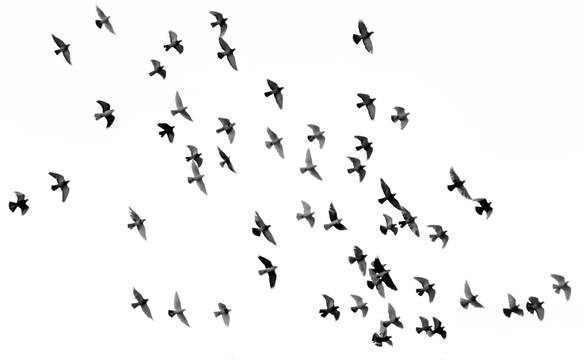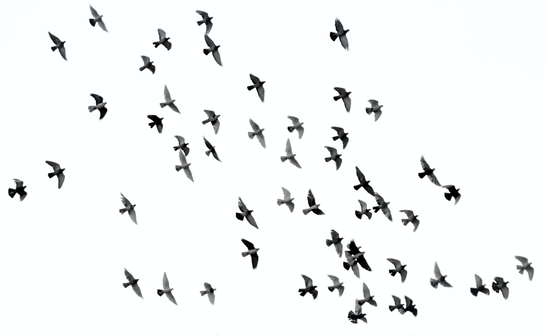INTRODUCTION
Just as birds carry their sounds everywhere they go to be recognizable by the other animals, music is a tool for us to define ourselves and our culture, and it allows us to express ourselves through performances and even just through listening. A key factor in the growth of community music has been the acknowledgment that everyone has a social and biological guarantee of musicianship and evidence that anyone, regardless of social status, education, mental health, or medical issues, can communicate through music. (Elliott, 2004; Miell, MacDonald & Hargreaves, 2005; Pavlicevic & Ansdell, 2004)
This thesis explores the relationship between the established individual differences and environmental factors when it comes to forming our musical preferences. In my experience, no matter where we come from, we all appreciate the beauty of sound and the depth of music in uniquely different ways. To be able to receive new ways of experiencing music, we have to understand that we all come from different backgrounds, and we all walked through different paths in our unique lives. The sounds around us were created by the environments we were affected by and the people we encountered. In his book Music of the common tongue: Survival and Celebration in African American music, Christopher Small refers to the composer and instrument maker Harry Partch, stating, “There is no sound that is enjoyed in one culture that is not thought of as a horrible noise in another” (Small, 2011, p. 117, as cited in Thomson, 2021, p. 58). Within the context of my concert, I am aiming to create a space where the musicians can bring their sounds without fear of being judged or accepted. By setting a space where we can be ourselves despite all the differences in our cultures, religious beliefs, or our past experiences, I would argue that we can reach a more authentic way of self-expression. This would allow us to better understand ourselves and process our emotions, which would have a positive impact on our mood, function, cognition, and behavior. (Handbook of Music Identities, p. 248-249)
What kind of significant incidents or moments could be identified as starting points for shaping our musical preferences throughout our lifetime? Why do we enjoy certain music? Is a person's musical taste influenced by heredity, or is it purely taught after birth? How do our music preferences influence our reactions to sounds and expressions during improvising?
From my experience, these are questions that do not have easy answers. Music is indeed diverse and endless, and so are our reactions to it. The very same piece of music can provoke different reactions in different individuals and one person might react differently to the same piece of music on different occasions. A great deal of research has shown that music can elicit a variety of emotions, and thus researchers have studied empirically what most people feel when listening to music. (Baumgartner, 2006; Gomez and Danuser, 2004, 2007; Juslin and Laukka, 2004; Juslin and Sloboda, 2001; Krumhansl, 1997; Saarikallio and Erkkilä, 2007; Sloboda, 1991; Vieillard, 2008; Zentner, Grandjean, and Scherer, 2008). From the neuroscientific perspective, one of the most difficult questions about music preferences is how listening to different types of music can connect the same brain systems associated with thoughts and memories. (Juslin, P. N. & Sloboda, 2001).
Amazingly, no one knows for sure why music has such a strong influence on the brain, the most important organ in the human body. On some levels we have answers, but not on all. Essentially, according to my opinion, we cannot pass judgment on people’s musical tastes or preferences. We should walk a mile in someone else's shoes to fully comprehend how they perceive music and what they find enjoyable or unappealing. I would argue that there is no such thing as a superior musical culture that everyone should emulate. As a musician myself, I've been trained to value the benefits of all types of music, whether Western, Eastern, Classical, Arabic, or any other known or undiscovered music tradition. Playing with artists from various backgrounds has taught me that there is always a way to collaborate, no matter how different we are. I strongly believe that music transcends cultures and is a universal experience. I believe that improvisation could be a great universal tool for starting to know one another as human beings. My aim for my bachelor's concert is to be able to create a white canvas that welcomes all colors, shapes, and materials. Miles Davis also famously compared his improvisational technique to Picasso's use of a canvas, claiming that the most important aspect of both artists' work was the space between the objects, rather than the objects themselves. The space between notes, the "air" he put between one note and the next, was the most important part of Mile's solos. Davis' brilliance lies in his ability to predict the next note and give the listener enough time to anticipate it. (Daniel J, 2006) When it comes to everything in our lives, I believe we need more space for deep listening. I will try to maintain the importance of silence, especially during my improvisation performance because, in my opinion, silence is required in music for something magical to occur. ”If you want to paint, first you need an empty canvas. If you want to know music, you need to know silence.” (Sadhguru (2016), Sadhguru Quotes)
Interviewing professional musicians from the Sibelius Academy's Global Music Department is one of the methods I have used in this thesis to discover answers to as many sorts of concerns as possible. The interviewees are professional musicians who come from various backgrounds and have studied and worked in an intercultural context. Through these conversations, I intend to discover crucial components for creating an atmosphere in my bachelor concert where all the artists, including myself, can express themselves freely and truthfully when improvising music together. Another approach is to use video and text resources from other artists and music scholars. I'll be looking for links between identity and music preferences, how our childhood experiences with our family and friends, the country we were born in, our past traumas, the language we speak could all be linked to our music preferences, and how all these factors might alter our ways of processing sounds. At this point in my life, I have to admit that as a child of immigrant parents, I have been moving in various music directions, and I have concluded that a human's identity is not fixed at all. Even if we don't realize it, we are continually evolving. I aim to strengthen the belief that improvisation can be used as a tool to connect deeply with one another, and that music unites us as human beings. I also intend to address the lack of cultural diversity awareness in our educational systems.
Daily, adolescents growing up in culturally diverse countries are exposed to a wide range of worldviews, attitudes, and lifestyles. Tolerance and understanding of other worldviews and lifestyles must be encouraged from an early age to guarantee that the human rights of people from all cultural backgrounds are recognized and protected (Barrett, Byram, Lázár, Mompoint Gaillard, & Philippou, 2013). In my experience, the earlier we are exposed to a variety of musical expressions, the more open we can become to one another's choices, not just in music but in all aspects of our lives. By promoting cultural diversity as musicians and educators, especially in this century where the geopolitical changes are calling for it more than ever, we can ensure that we will be able to raise generations who will know how to accept and embrace the variety of the sonic world, as well as any other similarities or differences we share as humans.
A blank canvas: The impacts of music preferences on reactions to sounds and improvisational expressions
DISCUSSION
In his magnificent essay “The Rest Is Silence”, Aldous Huxley writes: “From pure sensation to the intuition of beauty, from pleasure and pain to love and the mystical ecstasy and death — all the things that are fundamental, all the things that, to the human spirit, are most profoundly significant, can only be experienced, not expressed. The rest is always and everywhere silence. After silence that which comes nearest to expressing the inexpressible is music.” (Music at Night and Other Essays, 1931). Music improvisors influence the regular silences and moments of the sounds, either filling the space, commenting on it, or preparing us for the silence to come. During the performance, they must choose between sounds and silence, expressing themselves or remaining silent.
“Should I play the melody that my audience cherished last time? Do I sound enough like myself? What is my music identity? Am I playing the right notes? What should my next step be? What if I'm exaggerating with this expression? Am I giving enough space to others?” In my experience, these are some of the thoughts we may have as musicians, particularly when it comes to music improvisation. As humans, we want to be liked and accepted, and we desire to find our place in society. This is why we want to connect with others. (Schneider ML, 2013) From the standpoint of musicians, we believe that being accepted by our audience and other musicians is essential since it is one of the ways to make a living from our job. “What does my audience want to hear from me today? Who are the majority of my listeners?” These are challenging questions to answer since the audience or the environment in which we perform is always different. Even if we decide to have a performance in the same location every time, there is never a moment that is precisely the same as it was the previous time. So, how can we reinforce our own identity as artists while simultaneously making room for new ideas? Where do our musical preferences come from, are they hardwired into us, or are they malleable? How much control do we have over our musical identity after being exposed to certain types of music education and musical environments? How can we maintain our tolerance, empathy, and open ears when playing with others, particularly in an improvisation situation? Before we try to discover answers to these concerns, I believe we need first to understand how music identity is formed and what factors contribute to it.
In his video titled Music and Society: 2.1 Music and Identity, Hafez M'Hamdi is looking at three subjects connected to developing our identities: the relationship between music and identity in general, music and personal identity, and music and collective identity. Who are you and who am I? According to M'Hamdi, our identity is not entirely established or predetermined. We remember who our parents are, where we were born, the school we attended, the friends we have, and the decisions we made in the past. All of these things inform who we were, who we are, and who we may become in the future. Although, our identity does not remain constant; it transforms as a result of new experiences. In M’Hamdi’s opinion, our identity is a story, that is not fixed. (Music and Society: 2.1 Music and identity: An introduction, 1m15s-2m40s) He quotes musicologist Simon Frith, who says, "identity is ourselves in process" (Music and Identity, Simon Frith, 2007). I would say that our identity, as well as our musical identity, will change indefinitely. We will never be ready as artists, and especially in this age of globalization, I believe it is critical to be able to adapt to diverse musical cultures and expressions. Our musical choices reflect a lot about us, and to build a society in which everyone can be themselves without fear of discrimination, we could start by developing a music education system that allows as many musical cultures to participate as possible. In the Global Music Department, where musicians are encouraged to find their own expressions, I've noticed significant changes in my own way of playing and thinking about music. Everyone, in my opinion, should have the opportunity to express themselves musically in whichever way they think suitable since everyone interprets sounds differently. When it comes to music, everyone is unique because of our diverse origins, which are shaped by how we were raised, the cultures we were exposed to, and the ways our minds work. Nobody will ever be able to sound like Michael Jackson, and I argue that it should never be our intention to sound like someone other than ourselves, in my view. However, someone who considers pop music to be an important part of their musical identity may have comparable musical tastes as Jackson and utilize rhythmical concepts produced for him by Quincy Jones. People who appreciate Jackson’s music and even apply his musical ways in their musical expression are likely to enjoy African rhythms blended with Western-influenced harmonies. They might be those who find concepts in his lyrics with which they can identify and produce songs that have the same values, like peace, loving one another, and opposing racism. Therefore, the individuals that inspire us have a significant influence on the type of musician we become in the future. Especially when creating new music, we are not literally playing something new; rather, we are combining sound combinations from previous soundscapes that we have been exposed to.
What distinguishes our music? What can we do to sound like ourselves while still respecting music traditions and the people who have spent their lives keeping these traditions alive? In an improvisation situation, how can we employ traditional music elements and blend them, for example, with electronic music? In the context of my performance, I hope to combine as many different tastes, interests, and forms of musical expression as possible. I aim to create improvised music while performing in different duo settings and bring out the best in all of the artists. For me, it is important that the musicians who perform with me feel welcomed as individuals who are embraced with their specialty while also pushing my musical expression to new heights. My goal with these collaborations is to create music that listeners can connect with and provide them with something true and honest. As part of my Bachelor thesis, I interviewed two Global Music department students who also work as teachers and performers. Susjaira Kerpens is one of the interviewees, and she will also be performing in my concert. Another interviewee is Vasilis Katopodis, with whom I share a common cultural background. I will now offer a transcript of the interview with Kerpens and an audio recording of the interview with Katopodis, followed by an analysis of the points that were raised.
1. Interviewing Susjaira Kerpens
(Helsinki, 13.1.2022, M = Merve Abdurrahmani, interviewer, S = Susjaira Kerpens, interviewee)
M: Let’s go to the first question. How do you feel emotionally when you are listening to or performing your preferred music? How about when you are listening to or performing music that you do not like or are unfamiliar with?
S: When I play or listen to the music I enjoy, the thrill is incredible! The feelings are so intense that it becomes a spiritual experience. It turns into something I can't put into words; you just feel it. In terms of music, I don't like or am unfamiliar with when I perform or listen to, it may cause me mental, emotional, and even spiritual chaos. But if I allow myself to feel that sensation, I might be able to begin to appreciate it and have a better understanding of it. In Aruba, for example, I was not exposed to different kinds of odd meters. When I first became interested in Balkan music, I began to associate certain rhythms with my own prior experiences while playing the rhythms of my island. The groove's feel is, in my opinion, one of the most important characteristics that might distinguish us. We may place a different emphasis on specific beats, but both countries are strongly rhythmically tuned.
M: Wow, wonderful responses, my friend! Let's move on to the next question without taking up any more of your valuable time. Can you tell me about a time when you were listening to or playing your favourite piece of music, style, or genre? How did it make you feel? Especially in your body?
S: I was working on my music two days ago, and it brought me to tears since it was so personal to me. My head and my face felt heated, and I was both nervous and excited. I was imagining myself singing this song on stage while playing with my cuatro. Soon I will hopefully be able to share this piece of music with other people too and this thought made me feel like I have something to look forward to. Depending on how I feel on stage, my body will either be continually moving or just paralyzed, and if my arms and legs are frozen, mya facial expressions and eyes would be constantly shifting. If a piece of music is melancholic, I prefer to stand or sit and simply connect with the audience with my eyes. But if the music requires an energy shift, then I probably would invite the crowd to have the party of their life. Because at the end of the day, just like the legendary Celia Cruz sang: “La Vida es un Carnaval!”
M: Life is definitely like a carnival, especially for those who know how to dance to its beat! So, the next question. How much control do you think we have over our musical identity after being exposed to certain music education and musical environment?
S: When I was younger, I liked pop music, hip hop, and urban music, to mention a few genres. But when I first started singing jazz music and I was surrounded by jazz musicians and educators, everyone told me that pop music is not "real music". To avoid being questioned about my musical ability or professionalism, I began to avoid other forms of music. I think because I didn’t listen to mainstream music for a long time, I don’t gravitate toward it that often anymore. Probably, it has to do a lot with the comments that my teachers used to give me and of course, because they were my teachers, I followed their lead and trusted their knowledge. I didn't know any better back then, and I didn't realize those weren't my ideas. Those were not my opinions, but rather the ideas of some of my educators. Nowadays, I've grown more empathic to unfamiliar genres and, as a result, more inviting to people in general by not being judgemental.
M: Masha danki for your answers! Can you tell me about a time when you had to listen to a genre of music that you did not like? How did it feel? What kind of sensations did you have in your body?
S: When I started listening to noise and experimental music, my brain used to shut down, the music made me even angry, I started getting heart palpitations, and I begin sweating cold. I couldn't comprehend or make sense of the music; often, if I can't make sense of the sounds around me, my brain does the same thing as a laptop (access, denied), nothing starts making sense. Some specific noises may unintentionally remind me of certain memories, which may irritate me. It's similar to people meeting new humans: you don't know what their motives are, but you attempt to trust them and make sense of them, nevertheless. This is what I do with unfamiliar genres, I trust the process and let go of judgments and control.
M: I've had similar experiences with that genre. The fear of losing control, the fear of leaving behind the sounds that make me feel at home and familiar, the sounds that are related for me to happy hormones like dopamine, serotonin, endorphins, and oxytocin, which are released when we are satisfied and cause sensations of safety. It is scary, especially when you have never heard something like that before. I'd observe how my body began to create cortisol like it was attempting to protect me from danger. It's incredible how sounds can have such an impact on our thoughts. It is time for my last question. Could you tell me about a time when you got excited about something you never heard before and which sparked something in you and changed your direction as an artist?
S: Mayra Andrade, a Cuban-born singer, has touched my heart since the first time I heard her. I was about 16 years old at the time, and everything about her felt familiar. Everything, the rhythms, the melodies, the tone of her voice. Because of her, I realized that I can be myself and that I don't have to have a specific voice or sound to be able to touch people musically. At the end of the day, you have to be honest in whatever you do and no matter what you do, people will either like it or dislike it; so just be your damn self!
M: Once again, amazing thoughts! I'm hoping that this conversation may spark the awareness of others as well. Thank you for your valuable time and energy!
*cuatro = popular instrument in Latin America
*masha danki! = thank you! (Papiamento, spoken in Aruba)
2. Interviewing Vasilis Katopodis
(Helsinki, 30.3.2022, M = Merve Abdurrahmani, interviewer, V= Vasilis Katopodis, interviewee)
"Älä anna maailman määritellä millainen sinun tulisi olla. Ole oma itsesi."
Don't let the world define what you should be like. Be yourself.
INTERVIEW ANALYSES
The focus of these qualitative interviews was to get more viewpoints on music preferences and how different types of music genres might feel in our bodies. It is true that every one of us interprets sounds differently and associates certain sounds with certain memories or feelings. My purpose was not to discover straight answers to these questions, but rather to collect thoughts and information from other artists who, like me, work in a intercultural context and have been actively exposed to various music styles.
In her interview, Kerpens points to problems associated with her experiences in music education. She states: “I didn't know any better back then, and I didn't realize those weren't my ideas. Those were not my opinions, but rather the ideas of my educators.” (Kerpens, interview 2022). It's unfortunate how many of us have had similar experiences in the past. Kerpens' comment made me realize that there must be many people who, for fear of being judged, do not dare to explore their musical preferences and share their deepest desires in musical expression. I would argue that we can reach our full potential as musicians if we are allowed to change and evolve. Our fears and expectations of being and sounding a certain way will only harm our souls and the overall expression of music. I am fully aware that structures are required to make sense of music styles, and I do not argue that traditions should be abandoned. For me, it is just simply necessary to address the deeply entrenched belief that to be good musicians, we must have a certain way of expressing ourselves or a certain set of musical preferences. Musical styles are similar to different languages; we grow up with one or more, and as we grow up, we may discover another one that also feels like home, and we start communicating through it as well. We may use a word from a specific language to express exactly what we want to say because it resonates with us more or has a meaning that can only be expressed in that specific language.
“When I play or listen to the music I enjoy, the thrill is incredible! The feelings are so intense that it becomes a spiritual experience. It turns into something I can't put into words; you just feel it.” (Kerpens, interview 2022) We can see from Kerpens' response that music can be more than just a mental or physical experience. She says in the interview that the experience of certain sounds can even make her feel chaotic on the inside: “Some specific noises may unintentionally remind me of certain memories, which may irritate me. It's similar to people meeting new humans; you don't know what their motives are, but you attempt to trust them and make sense of them, nevertheless. This is what I do with unfamiliar genres, I trust the process and let go of judgments and control.” (Kerpens, interview 2022)
It's fascinating how sounds can have such a strong influence on our emotions and thought processes. They can evoke certain memories and make us feel safe or uneasy. Sound and music have also been shown to have a major impact on vital parameters such as blood pressure, heart rate, breathing rate, and heart rate variability (Loomba et al., 2012). Does the prevailing state of our nervous system have a significant impact on the types of sounds we produce during improvisation? I believe it does. When we are in an environment where we know that everyone is going to support our idea and make the most of it, we can start taking some risks. And the only way to be creative, in my experience, is to be in a trusting and supportive environment where you can take risks. That sense of safety could help us breathe new life into our music and it can create a healthier environment in which we could experiment with fresh ideas while strengthening our own musical identity.
“If we play together and I force you to play my identity, then I am doing something wrong. There should be space for both of us to explore what we need to explore” (Katopodis, 2022) As Katopodis mentioned, which I also strongly relate to, we should strive to give each other space while exploring our own musical identities. I think by doing this we can be truthful to ourselves and let others explore their sounds and expressions. “Then I am like, you know you are just a stereotype of a person like, who feels homesick and because you feel homesick you want to play that music. But do you express through that music?” (Katopodis 2022) In this part of the conversation, Katopodis describes how a particular musical culture can shape you and act as a kind of compass for your musical direction, but it can also make you feel stuck and limited in your expression. From my point of view, I think it is important to keep a balance in knowing where the music traditions come from and keeping them alive, and knowing when to break the boundaries and explore different territories. I would argue that even if we don't understand every sound or expression the music's depth of feeling and intensity shine through all the judgments.
"Herkes kendi yolunu izler. Insan bir ağaç gibidir. Neden kiraz vermiyor diye incir ağacının hiç azarladığın oldu mu?"
Nikos Kazantsakis
Everyone follows his bent. Man is like a tree. You've never quarreled with a fig tree because it doesn't bear cherries, have you?
SOURCES
Daniel J.,(2006), This Is Your Brain on Music: The Science of a Human Obsession, Dutton Penguin
Huxley A., (1931), Music at Night and Other Essays, Chatto & Windus
Pueblo, Y., (2021), Clarity & connection, Andrews McMeel
MacDonald, Raymond; Hargreaves, David J; Miell, Dorothy, (2017), Handbook of Musical Identities, Oxford University Press
Frith, S., (2007), Music and Identity, Ashgate Publishing
Christopher Small, 2011, p. 117
Small, C., (2011), Music of the common tongue: Survival and celebration in African American music. Wesleyan University Press.
Barrett, M., Byram, M., Lázár, I., Mompoint-Gaillard, P., & Philippou, S., (2013), Developing intercultural competence through education. Strasbourg: Council of Europe.
Juslin, P. N. & Sloboda, J. A., (2001), Music and emotion: theory and research. Oxford University Press, Oxford; New York
Loomba RS, Arora R, Shah PH, Chandrasekar S, Molnar J., (2012), Effects of music on systolic blood pressure, diastolic blood pressure, and heart rate: a meta-analysis. Indian Heart J.
Schneider ML, Kwan BM. (2013), Psychological need satisfaction, intrinsic motivation and affective response to exercise in adolescents. Psychol Sport Exerc.
https://www.uniarts.fi/en/units/global-music-department/
Photos by Bleron Çaka
OUTRO
before you can see
someone else clearly
you must first be aware
that your mind will impulsively
filter what it sees through the lens
of your past conditioning and
present emotional state
Clarity & connection, Yung Pueblo (Diego Perez), 2021
I think to thrive as musicians, we must have a space where we can make "mistakes" while also keeping in mind that different people may have different opinions about the quality of the sound, such as loudness, pitch, and timbre. In my research, I realized that some people may become irritated by certain music often not because they want to be mean, but because they do not find certain things safe or pleasing. I believe we should be open to criticism, but we should also be aware that how we express ourselves while criticizing has the potential to build or destroy. I learned that there are tools to create an environment in which everyone can feel free to speak their truth while also learning to respect and embrace different values and points of view. Just the fact that we each interpret sounds differently in our bodies and minds should be enough to make us more compassionate toward one another when it comes to improvising or making music together. The most significant observation I made was the importance of silence in any form of communication with people.
When attempting to create a safe space for any type of person, the ability to listen with open ears and connect with people heart to heart is critical. This could be a situation in which we are improvising for the first time or simply sharing a daily practice. Throughout my research, I had a lot of questions about how music preferences are formed and how they affect us, especially in an improvisational situation. I realized that not much has been discovered, particularly on the psychological side of this topic. However, from a social standpoint, it is clear that we as humans are constantly changing, and if we consider ourselves to be professional improvisers, I believe it is critical to be adaptable to the changes. Personally, I discovered that for things to change in the big picture, we need to first go inside and work on ourselves. Before we can learn to understand other peoples' expressions, we can start by accepting that every time we meet a new person, we see them through our own lenses. Every time we meet a new musician with whom we improvise, their life experiences and soundscapes from their past are still present. So, in order for both of you to have a safe space in which to work with each other, you must express a strong sense of acceptance and recognition that you are not only expressing emotions or sounds from the current time, but also sounds, traumas, and experiences from the past.
In my research, I gathered a lot of information from my own and other artists' perspectives on music preferences, music identity, and improvisation situations. I believe it is critical to share our own experiences and thoughts on these topics so that others can gain new perspectives, possibly connect with the experiences, and feel that they are not alone in their thoughts. I would like to see more research about the link between our musical preferences and our memories, as well as whether there is a link to our DNA. When it comes to these questions, there aren't many answers. I intend to delve deeper into musical preferences and the psychology behind them for my master's thesis. I'd like to learn more about whether our genetics influence our music preferences in life. If there is such a thing, it would be obvious that we do not choose the sounds, or music we like; rather, the music chooses us. But the most important thing to remember, in my opinion, is that we will never be ready as humans or artists; we must work on ourselves every day, which is, I believe, the beauty of life.
